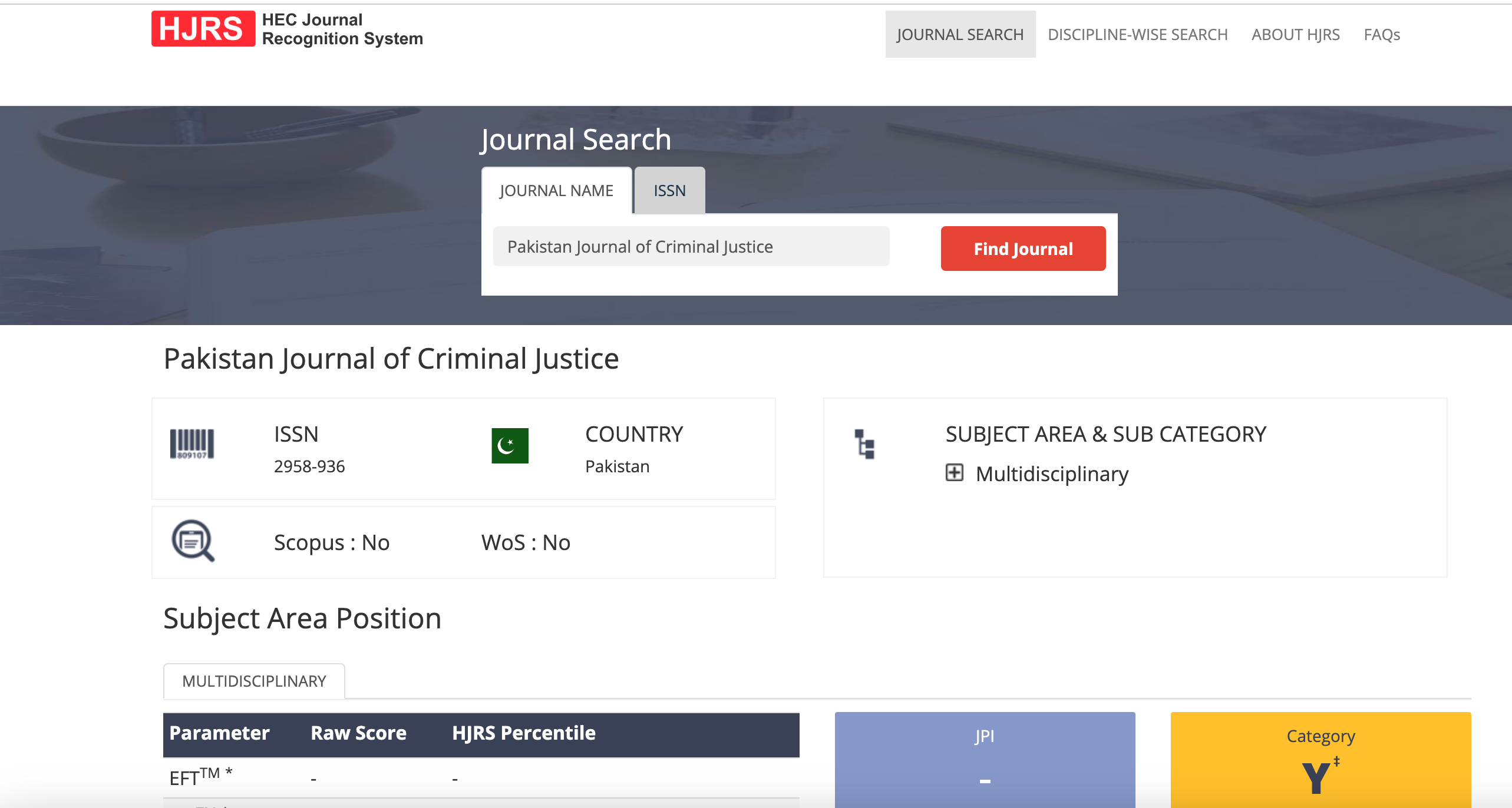Complaint & Misconduct Policy
Complaint & Misconduct Policy
Pakistan Journal of Criminal Justice (PJCJ) welcomes complaints by considering them an opportunity for improvement and aims to respond quickly and constructively. Our comprehension of a complaint is as follows:
- The complainant defines his or her expression of unhappiness as a complaint.
- We infer that the complainant is not simply disagreeing with a decision we have made or something we have published but thinks there has been a process failure—for example, an unacceptably long delay or a rude response—or a severe misjudgment.
- The complaint must be about something within the responsibility of PJCJ’s editorial division, i.e., content or process.
Complaint Making Process
- All complaints will be acknowledged.
- Complaints should be made either by sending an email to pjcj@centeriir.org or by posting to the address “House No.445, Shah Rukn e Alam Colony Multan, Pakistan”.
- The editorial team member who received the complaint will respond to it whenever possible. If that person cannot deal with the complaint, he or she will refer it to the editor-in-chief.
- If the complainant remains unhappy, complaints should be escalated to the editor-in-chief, whose decision is final.
- A definitive response should be made within two weeks. If this is not possible, an interim response will be given within two weeks. Provisional responses will be provided until the complaint is finally resolved.
The process to Deal with Issues of Misconduct
PJCJ thinks institutions and journals should promote best practices among researchers, authors, reviewers, and editors. To maintain integrity and deal with misconduct allegations, the editor can be contacted at editor.pjcj@centeriir.org. The editor is responsible for investigating misconduct by researchers and for finding misconduct that could affect the reliability or attribution of published work (e.g., fabrication or plagiarism). Evidence could be provided where possible to support allegations of misconduct or questionable practices (e.g., copies of overlapping publications and evidence of plagiarism). Retractions or corrections are issued when provided with findings of misconduct arising from appropriate investigations. Hence, it is advised that the authors and reviewers should read the guidelines provided on the journal’s website and must strictly adhere to all aspects of publication ethics.




